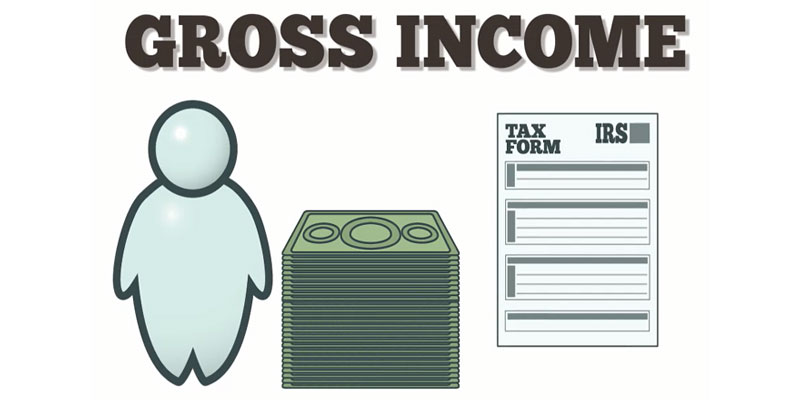Unearthing Gold: Tax Implications of Your Precious Find
Gold, the precious metal that has captivated human beings for centuries, has a magnetic allure that can turn anyone into a modern-day treasure hunter. Whether you stumble upon gold coins in your backyard, find nuggets while panning in a river, or discover hidden caches, the question that inevitably arises is, "Do I have to pay taxes on found gold?"
In this article, we will break down the tax implications of found gold, offering you a simplified guide to navigating the complex world of taxation. From the definition of found gold to the various scenarios and exceptions, we've got you covered.
What Qualifies as Found Gold?
Before we discuss taxes, let's clarify what we mean by "found gold." Found gold typically refers to gold or gold-containing items discovered unexpectedly without actively searching. Here are some examples:
Natural Discoveries: Find gold nuggets, dust, or flakes in nature, like while hiking, panning in rivers, or exploring caves.
Metal Detecting: Using a metal detector and stumbling upon buried gold coins, jewelry, or valuable items.
Inheritance or Gifts: Receiving gold through inheritance or as a gift without a clear record can also be considered gold in your possession.
Now that we've established what qualifies as found gold, let's explore whether you need to open your wallet to the taxman.
Paying Taxes on Found Gold
The tax treatment of found gold can vary depending on your specific circumstances and the country in which you reside. However, here are some general guidelines to help you understand whether you have to pay taxes on your newfound treasure.

Personal Use vs. Sale
One of the primary factors that determine whether you have to pay taxes on found gold is your intention with it. If you intend to keep the gold for personal use, such as turning it into jewelry or adding it to your coin collection, you typically won't owe any taxes on it.
However, if you intend to sell the found gold, you may be subject to taxation. When you sell the gold, any profit you make from the sale can be considered taxable income. This is where the secondary keyword, "pay taxes," comes into play.
Capital Gains Tax
If you sell found gold and make a profit, the tax you owe is often in the form of capital gains tax. Capital gains tax is a tax on the increase in value of your assets, in this case, the gold, from the time you found it until you sold it. The tax rate for capital gains can vary widely depending on your country of residence and how long you held the gold before selling it.
It's essential to check your local tax laws and regulations to determine the specific rate that applies to your situation. Some countries offer tax exemptions or reduced rates for certain types of gold, especially if it's considered a collectible or investment-grade.
Reporting Requirements
In many countries, if you sell gold or other valuable assets, you are required to report the sale to the tax authorities. Failure to do so could result in penalties and legal consequences. Make sure to keep meticulous records of your gold sales, including the date of sale, the amount received, and any associated expenses.
Exceptions and Thresholds
Tax laws can be complex, and there are often exceptions and thresholds that can impact whether you owe taxes on found gold. For example:
Gifts and Inheritance: If you receive found gold as a gift or inheritance, the tax implications can vary. Some jurisdictions may exempt certain amounts of gifted or inherited gold from taxation, while others may have thresholds above which taxes apply.
Numismatic and Bullion Coins: Different types of gold items may be treated differently for tax purposes. Numismatic coins, which are valued for their rarity and historical significance, may have distinct tax rules compared to bullion coins, which are valued primarily for their gold content.
Small Finds: Some countries have thresholds below which capital gains tax does not apply. If your found gold falls below this threshold, you may not have to pay taxes on it. However, these thresholds can vary widely.
Geographic Tax Variations
The treatment of found gold varies by location due to different tax laws and regulations. Here's an overview of how it's handled in some countries:
United States: Found gold is generally subject to federal and state laws. Federal tax law typically imposes capital gains tax on the income generated from selling found gold. The tax rate depends on your total income and how long you held the gold before selling it. Some states may have additional taxes, so be sure to check your state's tax laws.

United Kingdom: In the UK, found gold is subject to capital gains tax if it exceeds the annual exempt amount. The tax rate varies based on your income tax bracket, and certain types of gold, like legal tender gold coins, may have exemptions or reduced rates.
Australia: Australia follows a capital gains tax regime for found gold. There's an exemption for individuals who acquire gold lost or abandoned before September 20, 1985, potentially resulting in no capital gains tax on the sale.
Canada: In Canada, gold that has been discovered is typically classified as a capital asset, and any gains realized from its sale could potentially be subject to capital gains tax. However, there's an exemption for personal-use property, which can include gold jewelry and coins meant for personal enjoyment.
India: In India, the tax treatment of found gold is intricate and depends on factors such as the source of the gold, its intended use, and how long it's held. India has both income tax and wealth tax laws that may apply to found gold.
Conclusion
Finding gold can be a thrilling discovery, but it's essential to be aware of the potential tax implications that come with it. Whether you're holding onto it for personal enjoyment or planning to sell it, understanding the tax rules in your jurisdiction is crucial.
By following the guidelines and taking the necessary steps, you can enjoy your newfound treasure without any surprises from the taxman.







